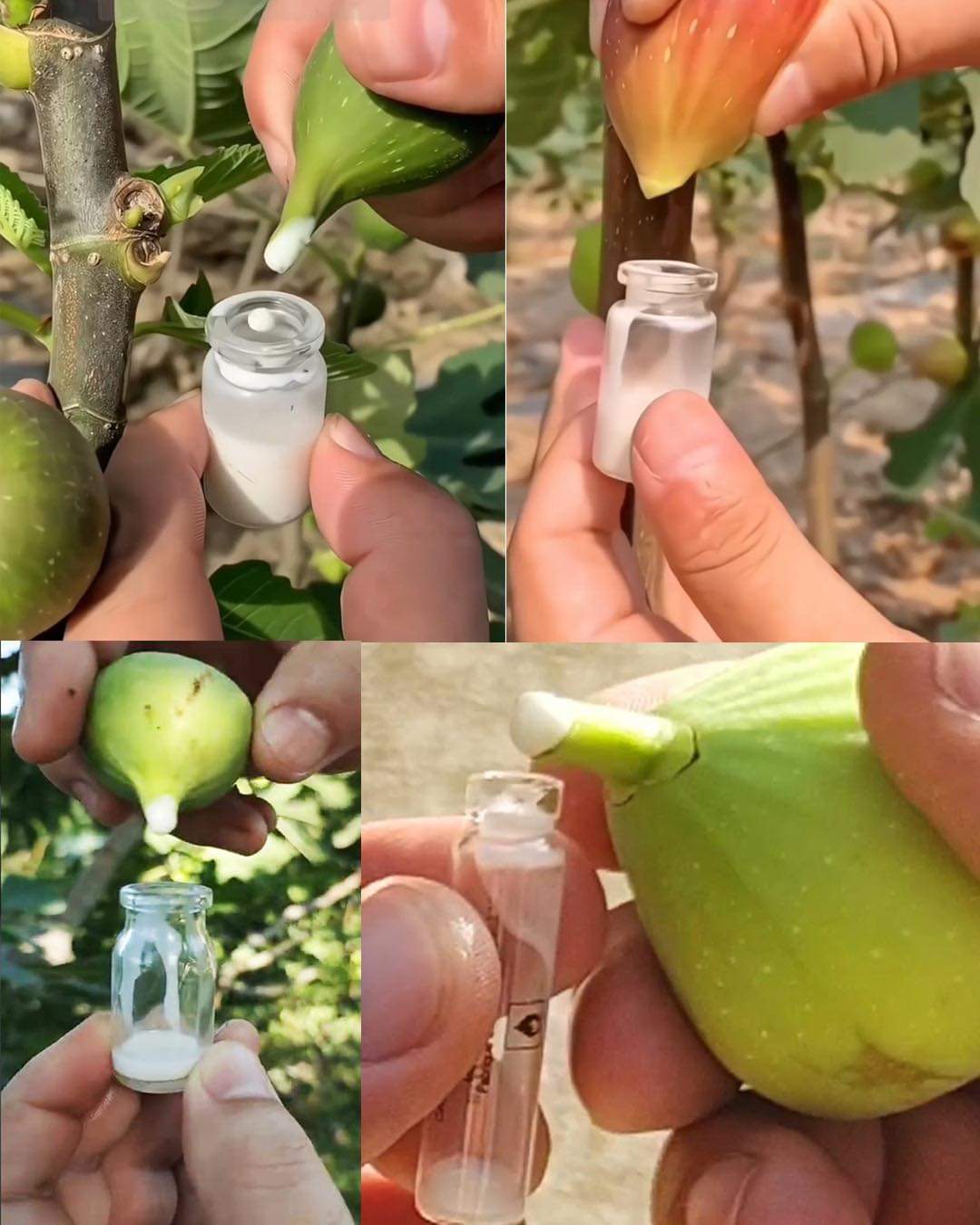Choose the Appropriate Location: Pick a place where you can easily make a minor incision on a branch or the trunk. Steer clear of any places that appear damaged or diseased.
Make a Small Incision: Gently score the fig tree’s bark. To reduce harm, the cut should be small, no longer than a few inches.
Compile the Sap: Place your collecting container underneath the cut to collect the sap that is trickling. You may need to leave it for a few hours, depending on the flow.
Seal the Cut: To prevent infections, seal the cut, once sufficient sap has been collected, with mud or a natural tree sealant.
Fig Sap Uses: Place fig sap in a small bottle.
Many cultures have used fig sap for its utilitarian and therapeutic qualities:
Natural Cure: Diluted fig sap has been utilized for thousands of years as a calm warts and skin irritations.
Culinary Uses: Fig sap can act as a coagulant in dairy-free cheese production if it is handled correctly.
Gardening Aid: When applied to other plants, the sap can serve as a natural insect repellent.
Gathering and utilizing fig sap is a fulfilling activity that gives several advantages in addition to a means of connecting with the natural world. You may contribute to your eco-friendly lifestyle by ensuring a safe and efficient collection process by following these measures.
Note on Safety
Always use diluted sap for a patch test to be sure you are not experiencing an allergic reaction. If you’re not sure how to handle and use fig sap properly, get professional advice.
ADVERTISEMENT
